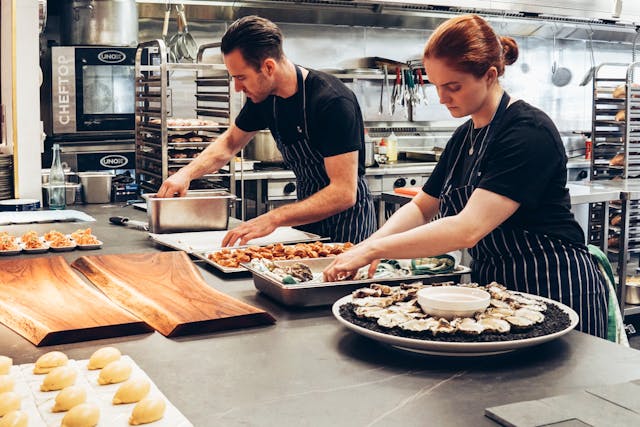Food waste is a significant challenge faced by the restaurant industry worldwide. Not only does it impact your bottom line, but it also has far-reaching consequences for the environment. In this post, we’ll explore practical strategies to minimize food waste while benefiting both your business and the planet.
Why Reduce Food Waste?
- Economic Savings: Every morsel of food that ends up in the trash represents lost revenue. By reducing waste, you can improve your profitability.
- Environmental Impact: Food waste contributes to greenhouse gas emissions, deforestation, and water wastage. By cutting down on waste, you play a role in sustainability.
Measure and Monitor
- Track Waste Metrics: Regularly measure the amount of food wasted—both pre-consumer (kitchen scraps, trimmings) and post-consumer (leftovers on plates).
- Analyze Patterns: Identify patterns—such as peak hours or specific menu items—that lead to more waste. Use this data to make informed decisions.
Smart Purchasing and Inventory Management
- Order Wisely: Purchase only what you need. Avoid overstocking perishable items.
- First In, First Out (FIFO): Rotate inventory to use older ingredients first. Label items with expiration dates.
- Inventory Software: Invest in inventory management tools to streamline tracking and reduce excess stock.
Portion Control and Menu Engineering
- Right-Sized Portions: Train staff to serve appropriate portions. Oversized servings often lead to leftovers.
- Menu Analysis: Evaluate menu items. Are there dishes consistently returned with uneaten portions? Consider adjusting recipes or portion sizes.
Creative Use of Scraps
- Nose-to-Tail Cooking: Utilize all parts of an ingredient. For instance, vegetable peels can be turned into flavorful broths.
- Stem-to-Leaf Greens: Don’t discard beet greens, carrot tops, or herb stems. Incorporate them into salads, pestos, or soups.
Engage Staff and Raise Awareness
- Training: Educate kitchen staff about waste reduction techniques.
- Staff Meals: Use surplus ingredients for staff meals. It fosters a sense of responsibility.
- Customer Communication: Encourage diners to order mindfully and take leftovers home.
Donations and Partnerships
- Composting: Set up compost bins for kitchen scraps. Convert waste into nutrient-rich soil.
- Recycling: Properly dispose of packaging materials to minimize landfill waste
Celebrate Your Efforts
- Transparency: Share your waste reduction initiatives with customers. They appreciate businesses that care about sustainability.
- Marketing Opportunity: Highlight your commitment to reducing food waste in your marketing materials.
Continuous Improvement
- Feedback Loop: Regularly review waste reduction efforts. Seek feedback from staff and customers.
- Innovation: Explore new ways to repurpose ingredients creatively.
Remember, reducing food waste isn’t just about saving money—it’s about being responsible stewards of our resources. By implementing these strategies, your restaurant can contribute to a greener, more sustainable future. Bon appétit!


